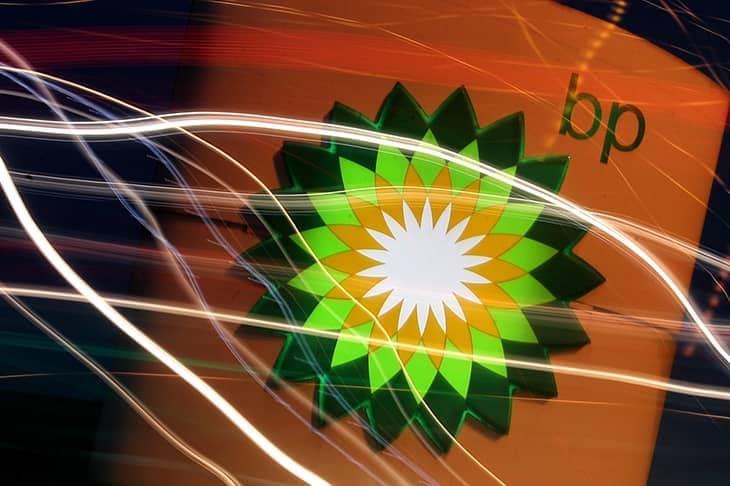BP will offload the 20 per cent stake in Rosneft, the Kremlin-controlled energy giant, that is the residue of 25 years’ effort to teach true capitalism in Russia. Shell is ditching a deal with Gazprom, the other state oil and gas major, that includes participation in the stalled Nord Stream 2 gas pipeline to Europe and an LNG project at Sakhalin in the Russian far east. Western companies in many other sectors will abandon their footholds in Putin’s empire in the coming days. Russia’s one-generation dalliance with the western way of business – as opposed to lawless homegrown kleptocracy – is over.
But just because Rosneft pays handsome dividends, let’s not vilify BP (or Shell) for trying. Back in the Yeltsin era, the world sincerely hoped Russia was set for economic rebirth. While BP chief John Browne was negotiating a first $570 million investment in Sidanko, Russia’s fifth-ranked oil company, I was in St Petersburg interviewing British entrepreneurs doing property deals, opening hotels and building phone networks. The last of those told me he once invited the city official responsible for inward investment to tour UK telecoms sites; his uneasy and largely silent guest was Vladimir Putin.
What we didn’t know then was that by allowing ownership of his nation’s most valuable resources to be grabbed by the emergent gangster-oligarchs who bailed out his bankrupt regime, Boris Yeltsin had already kicked Russia on to a one-way path to economic failure, doomed (in the analysis of Daron Acemoglu and James Robinson in their 2012 masterwork Why Nations Fail) to be permanently ‘extractive’ rather than ‘inclusive’. Only a corrupt elite would ever prosper. Nor could we have known that the competent apparatchik Putin who joined Yeltsin’s Kremlin in 1997 would mutate into the mad autocrat of today.
But we could have followed the fate of BP and seen the writing on the wall. The Sidanko stake turned sour when – long story short – another Russian company, TNK, seized its assets through dubious bankruptcy proceedings. In the resolution of that dispute, BP became a 50 per cent partner in TNK – the other half held by oligarchs who in due course tried to shake BP out by harrassing its expat managers: TNK-BP boss Bob Dudley ended up running the business by email from a secret location outside Russia. Finally, Kremlin pressure to bring TNK-BP’s assets under state control led to its 2013 takeover by Rosneft – which is how BP ended up with the holding it now wants to sell, though whether it can ever recoup the proceeds is another question.
For now, the West can do no business with a Russia gone bad. Yet I think back to sunny St Petersburg in June 1996, when my visit coincided with presidential elections. Between interviews I popped into a polling station and chatted to the proud volunteer official in charge. How utterly has his optimism been disappointed.
Beacon of boffinhood
In an unhappy week it was uplifting to hear that Brompton, the UK’s leading bicycle maker, plans to build a £100 million circular eco-factory on stilts at Ashford in Kent, with the aim of producing 200,000 of the company’s folding bikes per year compared with 70,000 from its current works in Greenford. I’m a former Brompton owner (I eventually gave mine to a friend living on a canal boat, for whom it was the perfect accessory) and a huge fan of this beacon of British engineering boffinhood. So I was amused by chief executive Will Butler–Adams’s comment on the design of the new headquarters: ‘The whole reason this works is everything about it is slightly mad.’
That was rather the impression the company itself gave in 2005 when I interviewed its founder-inventor Andrew Ritchie, ‘wearing navy-blue shorts and brown leather lace-up shoes, dragging on a thin roll-up, hunched over a desk strewn with cogs, chains and oily-fingerprinted invoices’. But what an achievement to have perfected, from his 1975 prototype, a design so elegant and intricate that no Chinese rival has ever produced a perfect rip-off. It’s a curious reflection that the best foreign engineers ever to have been legitimately involved with Brompton were Russians, from the space and defence industries, who developed the bike’s first titanium components – though I gather sourcing was later moved to Sheffield.
The last bank
Less uplifting news from what’s now my second home, Helmsley in North Yorkshire: the closure of our last bank, which happens to have special significance for me because it was the Barclays branch where my father, as a dashing demobbed 22-year-old major, reported for duty as a junior clerk in 1947. We’re a busy market town with a hundred businesses in the vicinity but we’ve already lost HSBC, Yorkshire Bank and NatWest – the last leaving its listed building semi-derelict for six years before a brave developer rescued it – and now we’ll have only the heroically old-fashioned Nationwide building society and a stand-alone ATM inside a mini-supermarket. But does any of this matter when cash is dying, cheques are rarer than rural bus services and mobile apps are super-slick?
Well yes, actually, because most people find online banking, beyond the simplest payment, laborious, clunky and prone to scams or outages; because it’s still natural to prefer a human face to a chatbot; because ‘saving the high street’ requires at least minimal financial infrastructure; and because the only institution that calls itself a ‘local relationship bank’ and deploys managers with individual lending powers – I speak of the 200-plus UK outlets of Handelsbanken of Sweden – has been rated top for customer satisfaction 13 years running in an independent EPSI survey. If its UK chief Mikael Sørensen would care to inspect the vacant Barclays as a potential new branch, I’ll offer him lunch in one of our excellent hostelries.







Comments